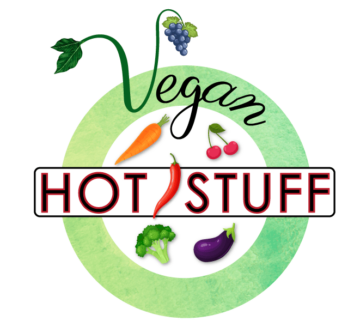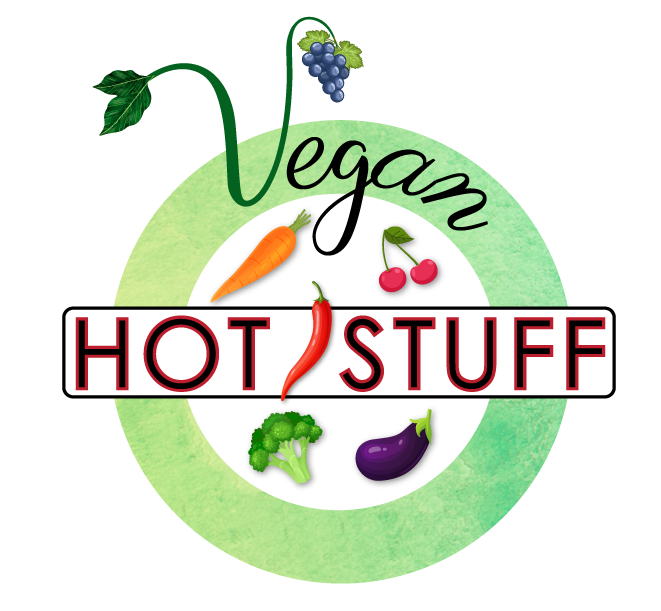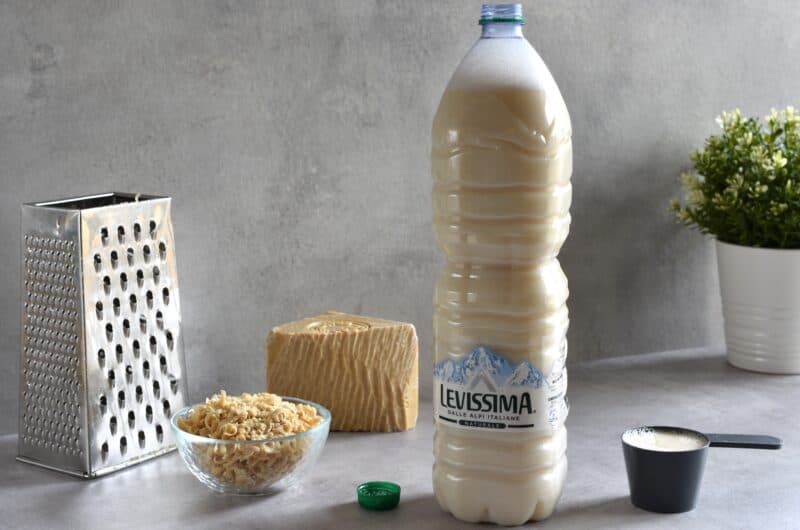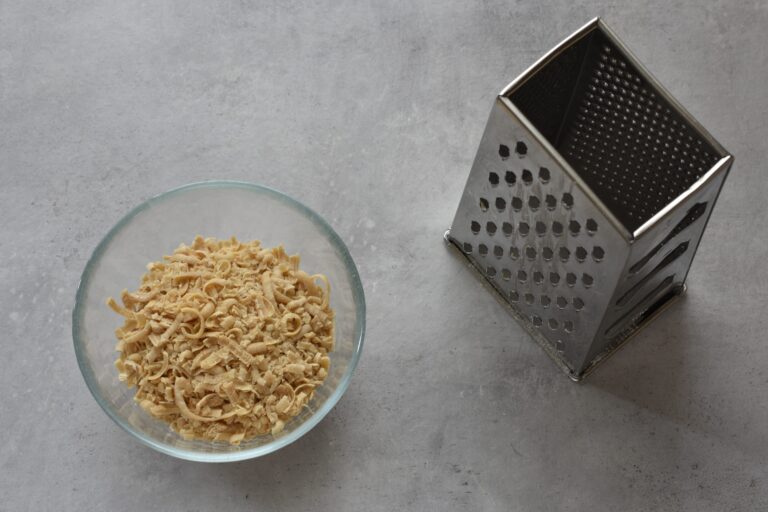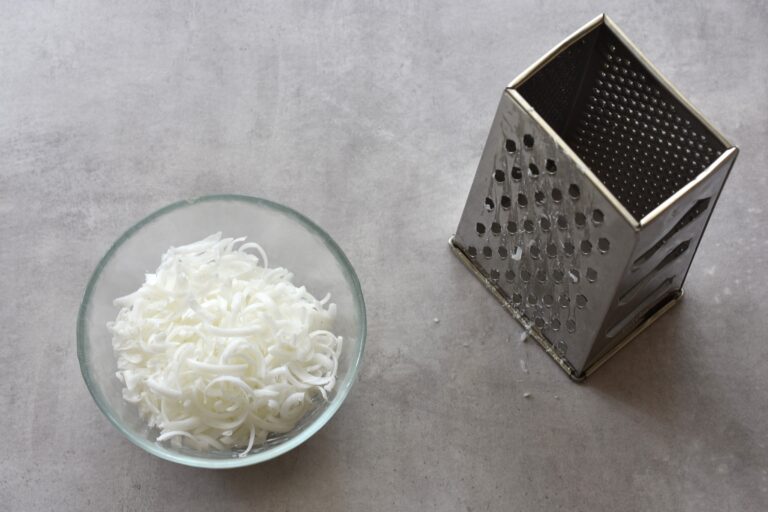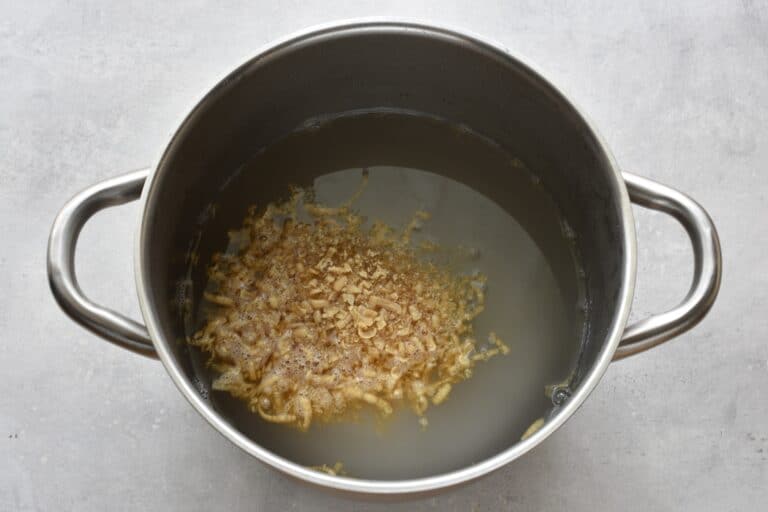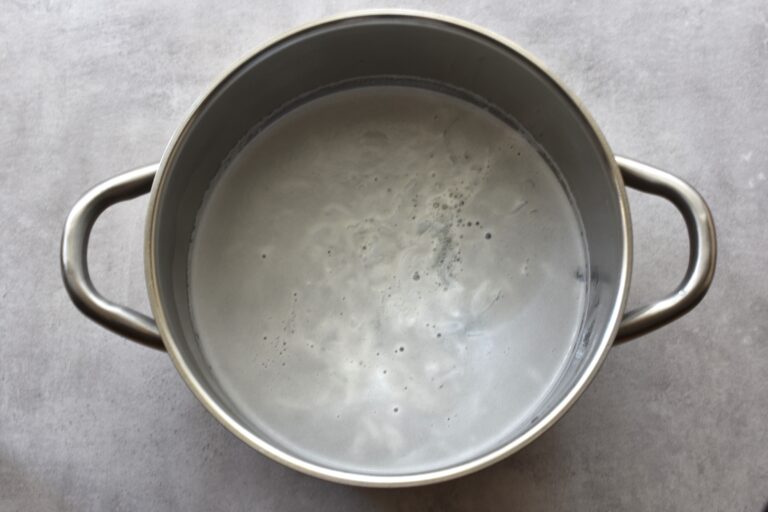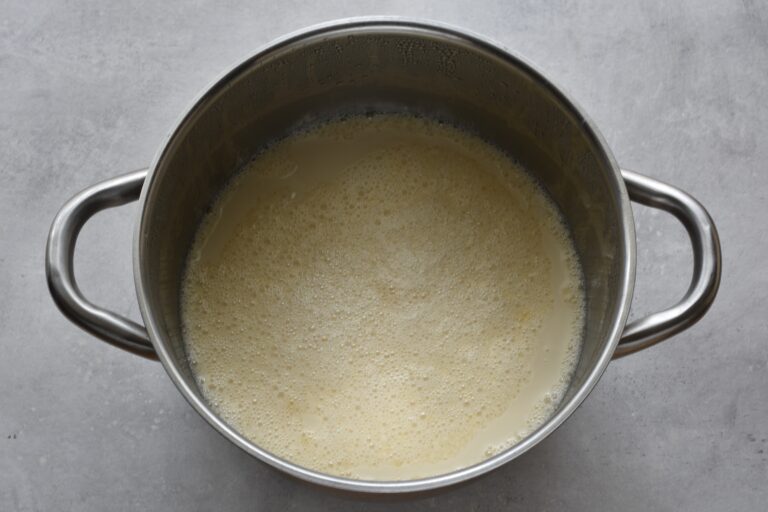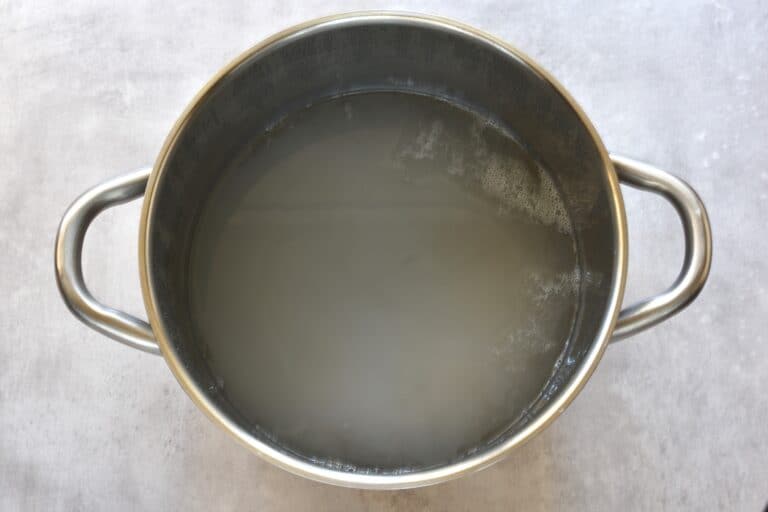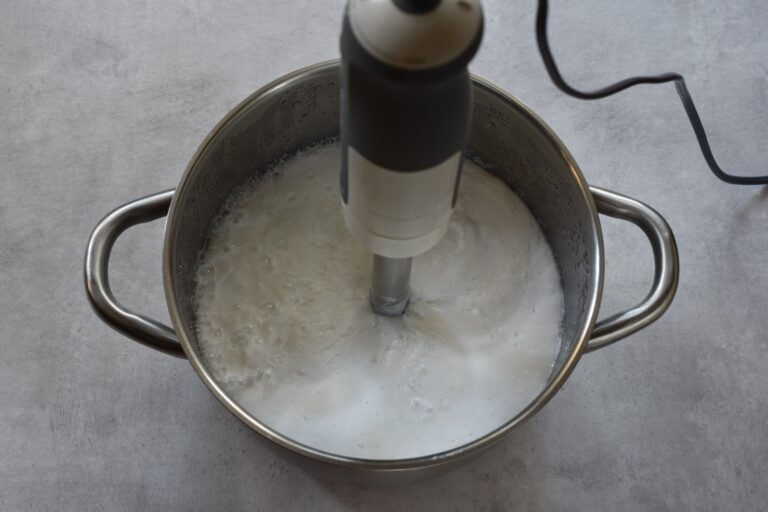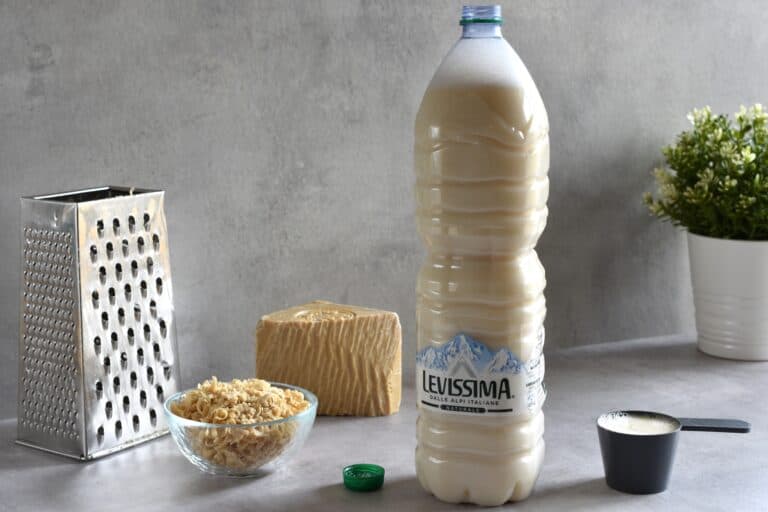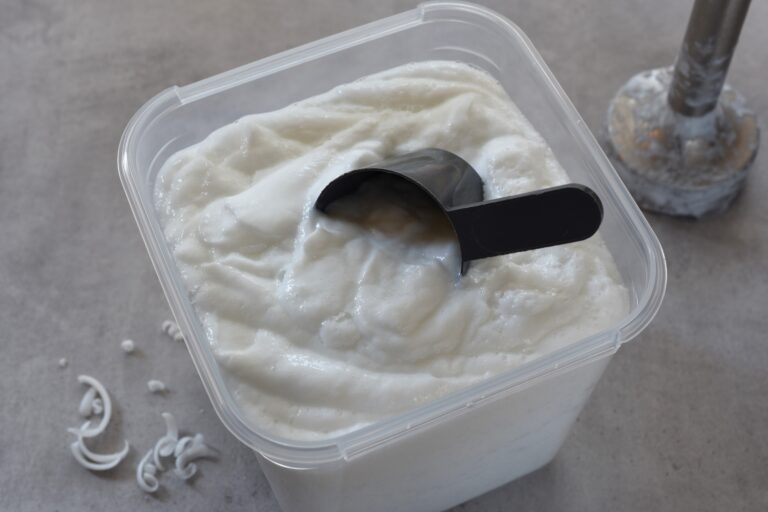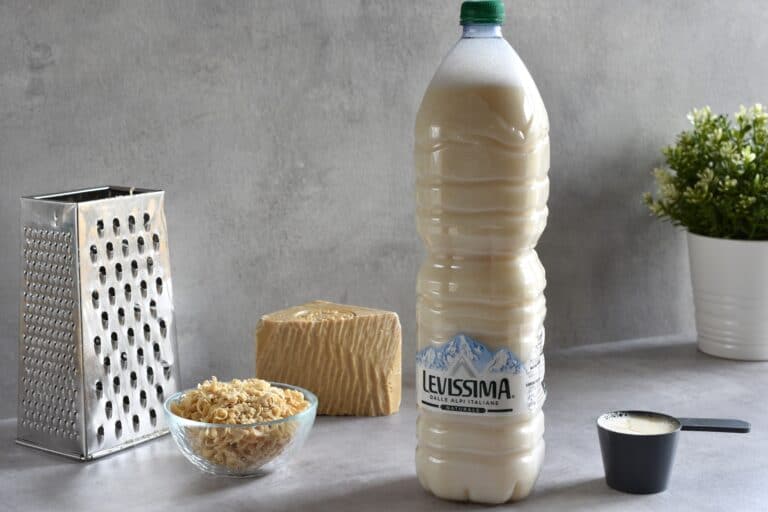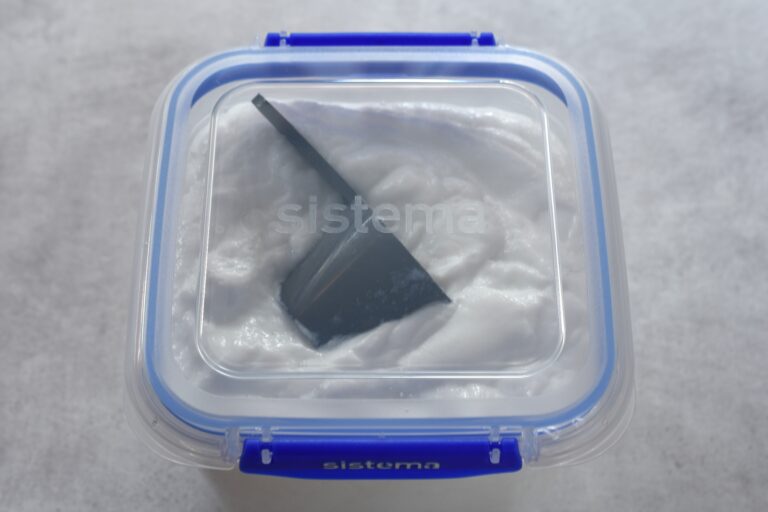In this post, you’ll learn how to make vegan laundry soap quickly and easily at home! Without borax, washing soda or other harsh chemicals. Making your own laundry soap at home means you have full control over the ingredients. This is important for vegans but also for people who have allergies and sensitive skin. This homemade liquid laundry soap is hypoallergenic, biodegradable, cruelty-free, and up to 10 times cheaper than shop-bought laundry soap. From 100 g of Marseille soap, you can wash about 20 machine loads of clothes – at a cost of around 1 or 2 euros, depending on the prices where you live. I pay €6.00 for a 600 g block of authentic Marseille soap. That means I can do 120 washing cycles for €6, which works out at €0.05 per cycle.
Making your own laundry soap at home is also good for the environment because you can practically reduce waste to zero. No more huge liquid laundry soap bottles or cardboard boxes going to recycling or landfills. Although HDPE plastic is 100% recyclable, and you may think putting plastic bottles in the recycling bin solves the problem, you’ll probably be surprised to learn that, according to recent studies, only about a third are properly recycled.
Most importantly, no animals have been harmed or exploited in the production process of Marseille soap. Unfortunately, a lot of testing is still done on animals, particularly in cosmetics and household detergent industries. Many shop-bought detergents also contain animal byproducts, even though that’s starting to change now with so many people adopting a vegan lifestyle.
This 3-ingredient vegan laundry soap recipe takes just 10 minutes to make. All you’ll need is a large saucepan with a lid, a bar of vegan-friendly Marseille soap, bicarbonate of soda (baking soda in the US), and water.
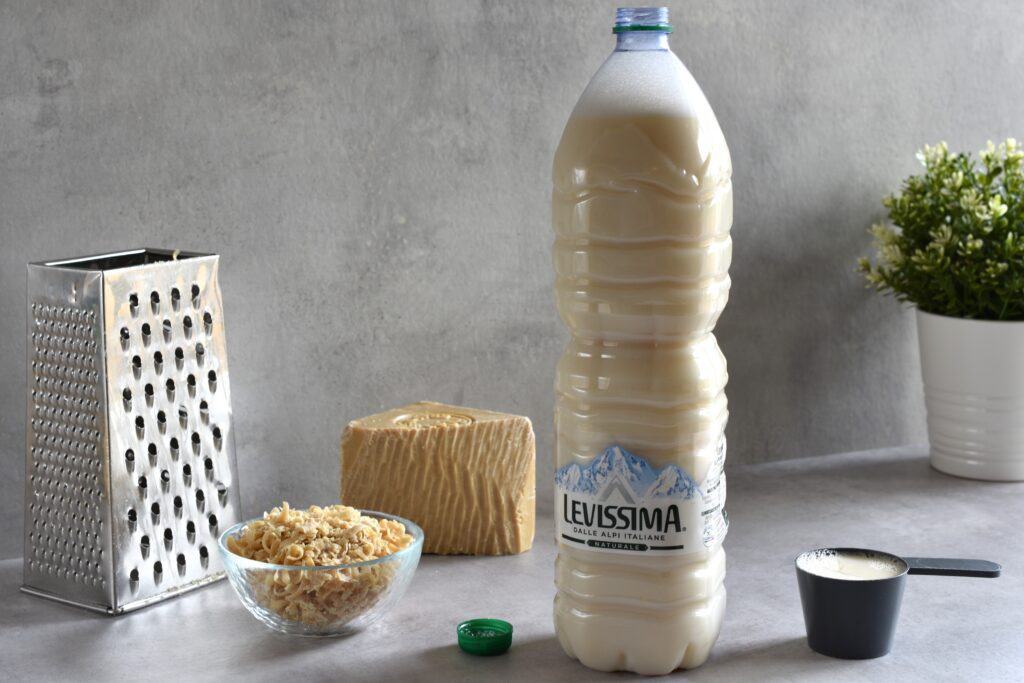
- What is Marseille soap?
- What's so special about Marseille soap?
- Where can I buy Marseille soap for laundry washing?
- How do you use Marseille soap for laundry?
- What can you expect from this vegan laundry soap recipe?
- How to choose the right Marseille soap
- Can I use a different kind of laundry soap for this recipe?
- What can you use instead of fabric softener?
- How to make your own laundry soap at home
- How to use your homemade vegan laundry soap
- How to store your vegan laundry soap
- Frequently asked questions
- Is Marseille soap safe?
- Is Marseille soap vegan?
- How is Marseille soap made?
- Is Marseille soap hypoallergenic?
- Is Marseille soap environmentally friendly?
- Can Marseille soap be used for household cleaning?
- What is the difference between Castile and Marseille soap?
- Which is better, Castile soap or Marseille soap?
- How do you make natural laundry detergent?
- Why is my vegan laundry soap watery?
- Why are there less suds than with normal detergent?
- Why is homemade laundry detergent bad?
- Final remarks
What is Marseille soap?
Savon de Marseille, as it’s called in France, comes from the French city of the same name. The soap’s origins date back to around 1370, and it was created to be the ultimate multi-purpose cleaning product. Today, it’s making a comeback as we realise that many laundry detergents, skin care products and household cleaners contain harmful chemicals.
Traditional Marseille soap is made from natural ingredients, including vegetable oils such as olive oil or a combination of oils. These oils are saponified with sodium hydroxide (lye) to create soap. Authentic Marseille soap does not contain synthetic fragrances, colourants, or additives. It’s naturally vegan and 100% biodegradable.
Make sure you get the real thing. There are many fakes out there made using cheaper ingredients, which won’t be as effective and may contain animal fats. If they are made with vegetable oils, then you will most likely find that they primarily contain palm oil. The production of palm oil has significant environmental and social impacts, such as deforestation, habitat destruction, climate change, human rights abuse, and monoculture farming. It’s best to source a soap made of mainly olive oil and a combination of other oils but without palm oil.
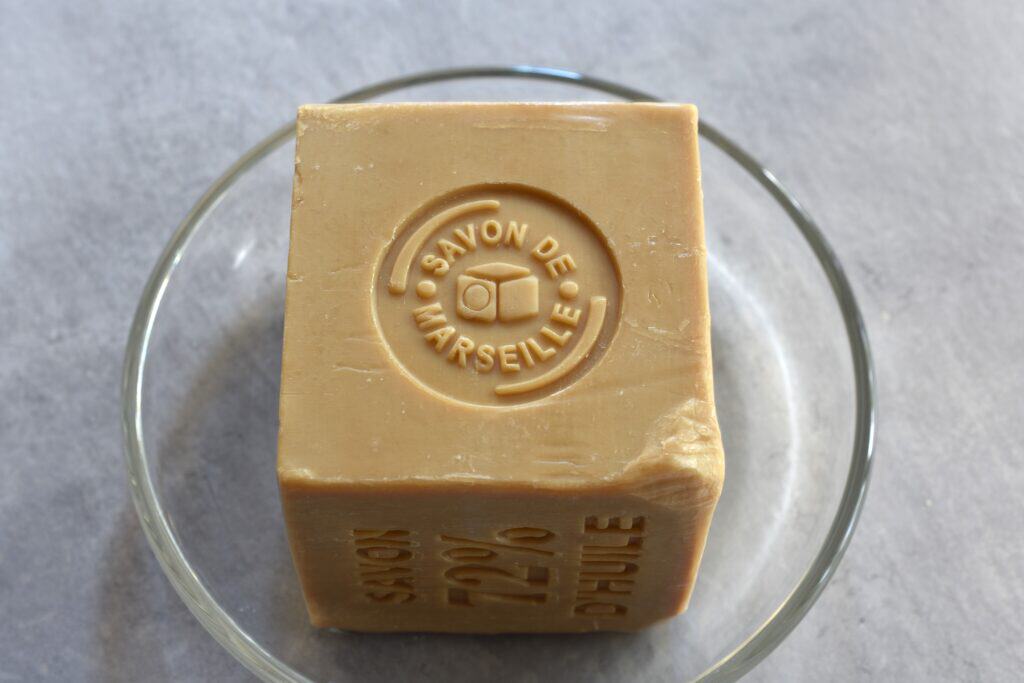
What’s so special about Marseille soap?
This is the best vegan laundry detergent recipe because it’s homemade, using authentic Marseille soap. Marseille soap is special because it’s made from vegetable oils – without colouring, perfume or synthetic additives. It minimises the risk of allergies and is suitable for all skin types, including young children.
Marseille soap is incredibly versatile and can be used for various purposes. It can be used as a body soap, hand soap, shampoo, laundry soap, dish soap, and even for cleaning around the house. It is particularly valued for its effectiveness in stain removal and as a natural household cleaner.
If you can get hold of real, authentic Marseille soap, it’s better than the bars you find in supermarkets, which are often imitations created by industrialists and can never quite equal the real thing.
Some laundry detergent recipes online contain borax and washing soda. While these may make good detergents, they may have some safety issues. Borax is actually banned in the UK and EU. Why expose your family to unnecessary risks? I suggest you do your own research on these substances.
Where can I buy Marseille soap for laundry washing?
I use Marius Fabre authentic Marseille laundry soap, which I buy online from this store in Italy. On the Marius Fabre website, you will find a store locator that you can use to find out where you can buy their products. Please note that these recommendations are based on my personal preferences and are not sponsored links.
How do you use Marseille soap for laundry?
You simply grate the desired amount from a solid block of Marseille laundry soap, then add it to boiling water with a little bicarbonate of soda, and stir it occasionally until it has completely dissolved.
What can you expect from this vegan laundry soap recipe?
Scent
Marseille soap is naturally unscented, so your washing will not have an aroma, but it will smell clean and fresh.
The fragrances in store-bought laundry soap are chemical-based perfumes created in a laboratory. That’s how they maintain their consistent aroma for hours or even days – by leaving a cocktail of chemicals on your laundry, which then comes into contact with your skin.
If you really want scented laundry soap, you could add a few drops of essential oil to the final rinsing cycle. There’s not much point in adding essential oils to the actual laundry soap because they will get diluted during all the washing and rinsing cycles. Pure essential oils are expensive, so it would be silly to waste them like that.
I don’t use essential oils at all because they, too, have negative environmental impacts. Beyond the obvious toxicity for aquatic life, enormous quantities of plants (some of which are endangered species) are required to make a tiny bottle, and the whole process is very water-intensive. These two articles make for interesting reading: The environmental impact of essential oils and How sustainable are essential oils?
Efficacy
Marseille soap is very efficient at removing stains. For very stubborn stains, it’s best to rub the soap directly onto the material before washing. You may still need a stain remover like Vanish for some things, though. Marseille soap doesn’t contain whiteners, so you won’t get “whiter than white” or “blue white”. The flip side is that your colours will stay vibrant for longer. Rest assured, though, whites come out white.
Suds
This homemade liquid laundry detergent will produce less suds and foam than commercial laundry detergents. However, a lack of suds and bubbles doesn’t mean the soap isn’t effective; suds and bubbles don’t equal clean.
Consistency
This eco-friendly liquid laundry detergent is more watery than the average commercial detergent, but that doesn’t mean it’s less effective!
A centuries-old laundry soap formula
Don’t forget that Marseille soap bars were what our great-grandmothers used for washing their clothes before the invention of washing machines. Not everything that has been invented recently is actually an improvement. On the contrary, many people are starting to realise that and going back to old methods and remedies that were used with great success for centuries. Don’t get me wrong, washing machines are an essential part of our everyday lives, but we must make informed decisions about the detergents we use in them.
Vegan, hypoallergenic, biodegradable, cruelty-free, economical, and effective
If you’re looking for a liquid laundry soap that’s made from plants, wasn’t tested on animals, is kind to your skin, eco-friendly, cheap, and does the job, this homemade liquid laundry soap recipe fits the bill!
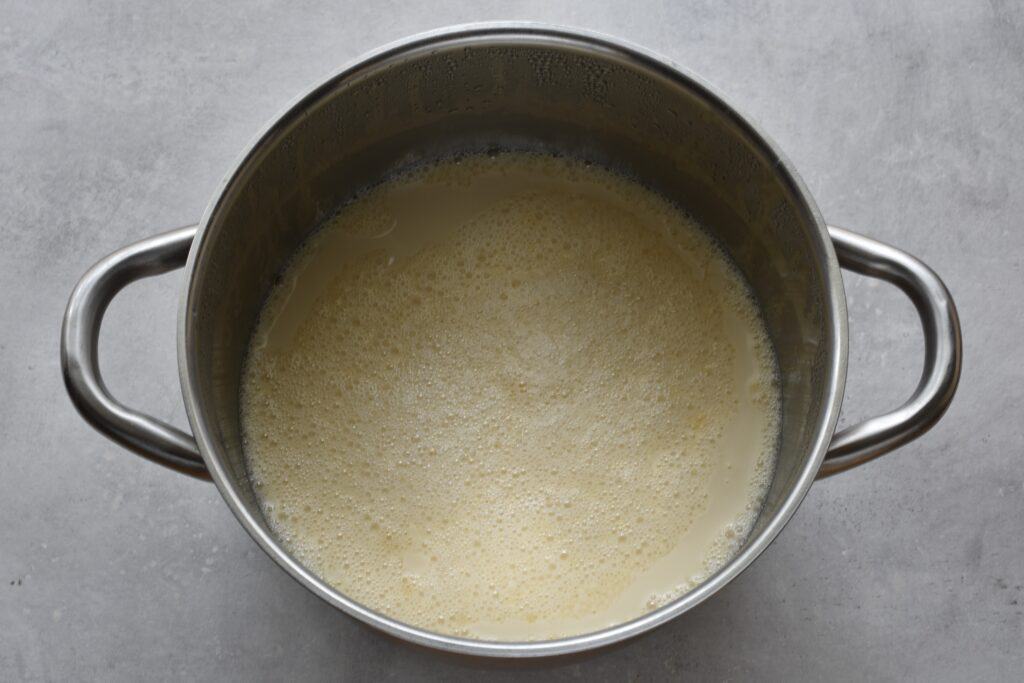
How to choose the right Marseille soap
- Marseille soap or savon de Marseille must meet certain criteria, including being made with vegetable oils, having no synthetic additives, and being produced in the Marseille region or nearby area.
- While traditional Marseille soap is highly regarded for its purity and simplicity, there are also counterfeit products on the market. To ensure you are purchasing authentic Marseille soap, look for products that clearly state their ingredients.
- The environmentally conscious will probably want to avoid palm oil. Manufacturers are now phasing out palm oil and opting for more sustainable oils instead, such as oleic sunflower oil. Here’s how to detect palm oil in an ingredient list: any time that “palm” is mentioned, like palm kernel, palm stearine or palm fruit oil, or technical names such as palmitate, palmate, and palmitoyl, we’re talking about palm oil.
- Original Marseille soap is either beige, brown or greenish in colour. To ensure you have an authentic Marseille soap, look for the wording 72% vegetable oils on one side of the soap (and on its packaging), and read the composition carefully. It should only contain vegetable oils, soda, salt, water, and traces of glycerin (naturally present in vegetable oils). Nothing more!
Can I use a different kind of laundry soap for this recipe?
Yes, you can. As I said before, there are many types of laundry soap available in supermarkets and online. While I wholeheartedly recommend using authentic Marseille soap for making this recipe, you can certainly try other types. I experimented with other types, too, before settling on real Marseille soap.
Marius Fabre Marseille laundry soap remains liquid even when cold. Once it has cooled down, you can pour it straight into a large bottle using a funnel. I use any kind of bottle I happen to have on hand.
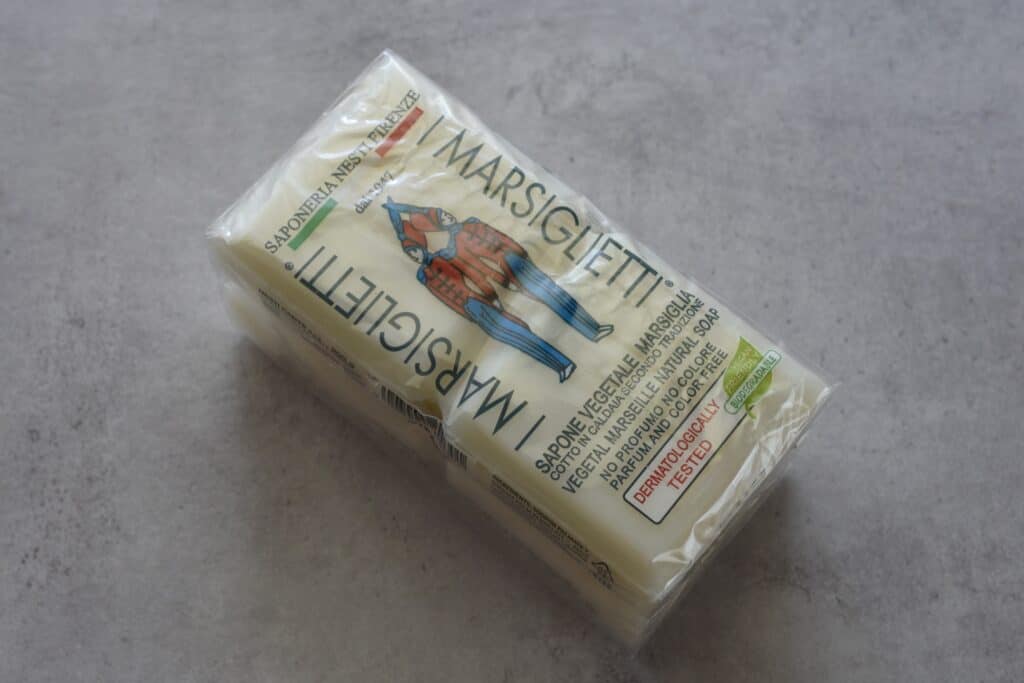
If you use a different kind of soap, you might find that it becomes solid again once it has cooled down, although nowhere near as hard as the original block. If this happens, use an immersion blender to blend the soap until it becomes a homogeneous mass similar to thick liquid laundry detergent. Pour the soap into an airtight container with a lid. You’ll need a small scoop to get it out of the container. I use a 70 ml scoop, just a little larger than a 1/4 cup, which is 60 ml, to give you an idea.
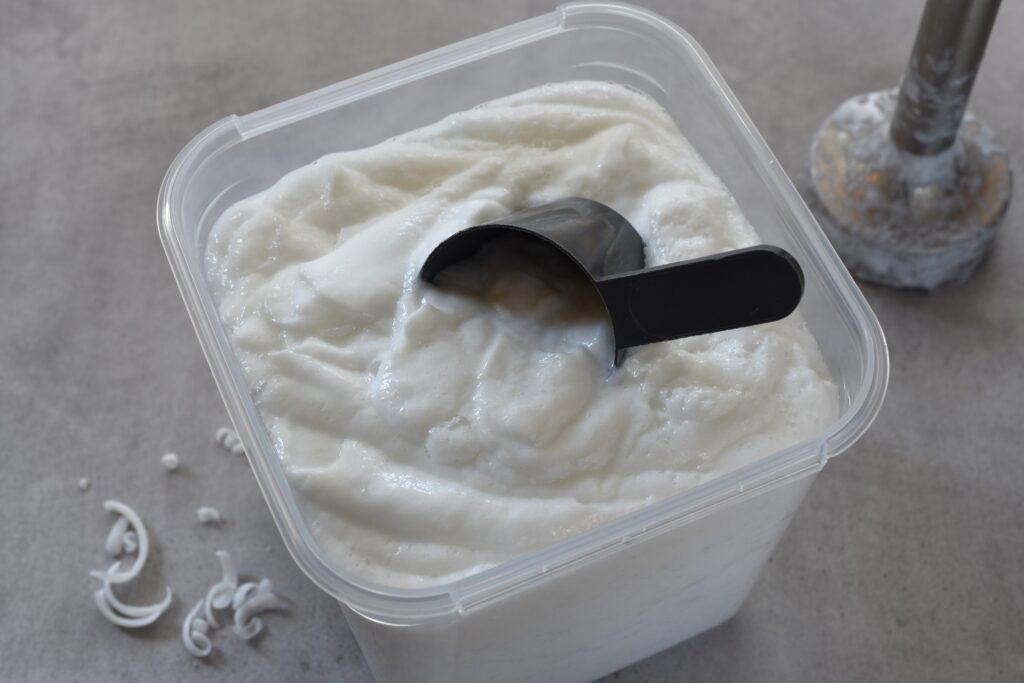
What can you use instead of fabric softener?
When you start making your own laundry soap at home, you’ll probably find that you no longer need a fabric softener. This is because the bicarbonate of soda in this laundry soap softens the water to some extent. It does this by raising the pH of water, making it slightly less acidic. This change in pH can have some impact on water hardness. However, for particularly hard water or if you like your fabrics to be even softer, a small amount of white vinegar in the final rinse does the job perfectly. Don’t overdo it, though – otherwise, you’ll be able to smell it on your clothes.
How to make your own laundry soap at home
Ingredients
You’ll find the exact quantities of each ingredient indicated in the recipe card below.
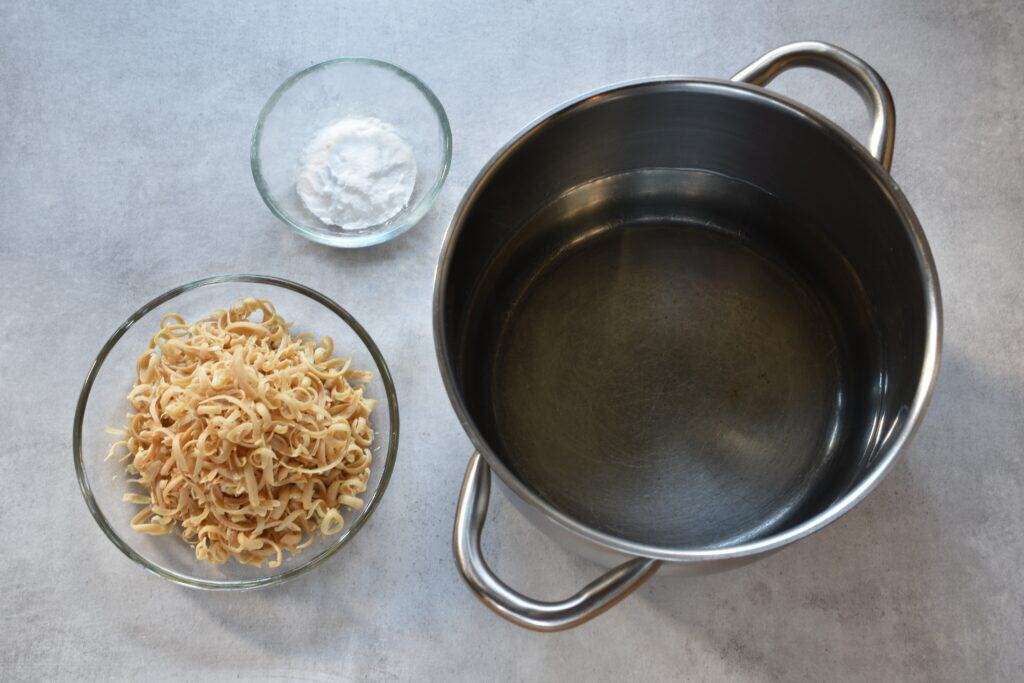
- Marseille soap – See how to choose the right Marseille soap above. I use Marius Fabre 600 g block of authentic Marseille laundry soap.
- bicarbonate of soda (baking soda in the US) – The function of bicarbonate of soda in this recipe is to neutralise odours by balancing pH levels and soften hard water. That way, you can use less detergent and make it more effective. Please make sure the brand you use is not tested on animals! If in doubt, you can just omit it.
- water
Method
You’ll find step-by-step instructions with photos in the recipe card at the bottom of this page.
- Using the coarse side of a cheese grater, grate 100 g off the bar of soap.
- Bring one and a half litres of water to a boil in a saucepan.
- As soon as it comes to a boil, remove the pan from the heat and add the grated soap and bicarbonate of soda. The bicarbonate of soda will react with the other ingredients, causing the mixture to rise suddenly. This is why you needed a large pan! Stir the mixture with a metal spoon, and it will quickly settle. Give it a final stir and put a lid on the pan.
- Leave the mixture to stand until it has completely cooled.
- If your laundry soap remains liquid once cooled, you can pour it straight into a bottle.

- If your laundry soap becomes solid again once cooled, use an immersion blender and blend it until smooth.
- Then, pour it into a plastic container.
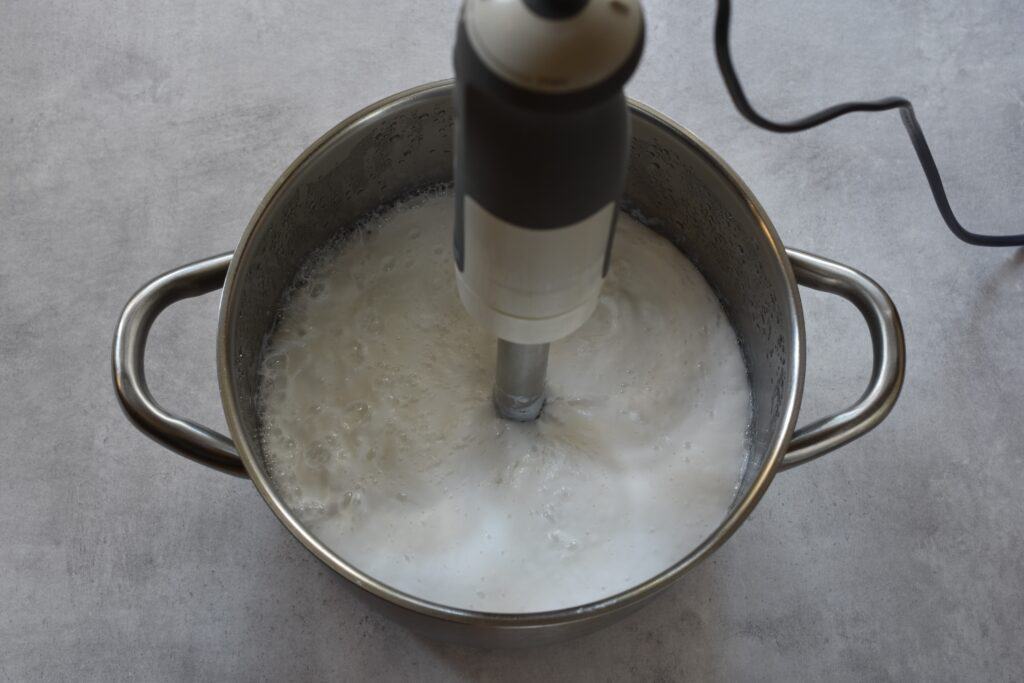

How to use your homemade vegan laundry soap
Get yourself a little scoop. 60-70 ml is perfect. Load the machine and put a scoopful of laundry soap in with the clothes. Alternatively, you can put it in the main wash compartment of the machine. If your laundry soap is on the dense side, you will have to check that it gets flushed down into the machine properly. Being somewhat thicker, it sometimes gets stuck a bit. If your laundry soap is liquid, simply pour it into the scoop to measure it and then put it straight into the washing machine, either in the drawer or in with the drum with the clothes.
How to store your vegan laundry soap
Store your laundry soap in a bottle or an airtight container on top of the washing machine or in another easily accessible place. It will keep for months. Liquid laundry soap may appear to separate after it has been standing for a while. You just need to shake the bottle briefly for it to return to normal.
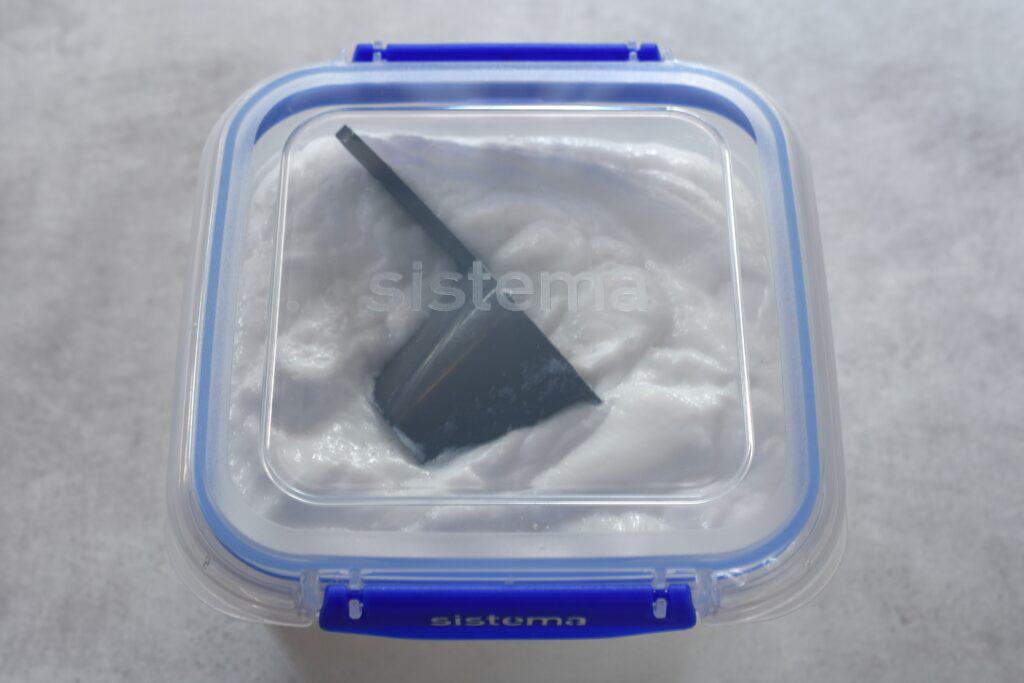
I really hope you enjoy making your own homemade vegan laundry detergent! If you found this post useful, would you consider giving it a 5-star rating and leaving a comment below? I’d really appreciate that – it’s a great way to support me, and it helps other readers find my blog and articles.
Frequently asked questions
Is Marseille soap safe?
Yes, Marseille soap is safe for everyone, including babies and people with sensitive skin. The ingredients in Marseille soap are very simple and natural, with no chemicals or synthetic additives, which is why dermatologists recommend it for people with delicate skin. It’s also suitable for washing babies’ clothes.
Is Marseille soap vegan?
Yes, Marseille soap is vegan and cruelty-free.
How is Marseille soap made?
If you want to know more about how Marseille soap is made, you can read this article on Wikipedia or this one on the Marius Fabre website.
Is Marseille soap hypoallergenic?
Marseille soap is formulated to minimize the risk of allergies and is often certified hypoallergenic.
Is Marseille soap environmentally friendly?
Yes, Marseille soap is considered environmentally friendly for several reasons:
- Marseille soap is biodegradable because it is made from natural vegetable oils and contains no synthetic additives or harsh chemicals. As a result, it breaks down naturally in the environment without harming ecosystems.
- Authentic Marseille soap is traditionally made from vegetable oils such as olive oil, palm oil, or coconut oil, which are renewable and sustainable resources. These oils are sourced from plants rather than petroleum-based sources, reducing dependence on non-renewable fossil fuels.
- Marseille soap is usually sold in simple, minimal packaging, such as paper wrappers or cardboard boxes. This reduces the amount of plastic waste generated compared to many commercial soap products, which often come in plastic bottles or containers.
- Marseille soap has a long history of production in the Marseille region of France, where traditional soap-making techniques have been passed down for generations. Supporting local producers of Marseille soap helps to sustain traditional craftsmanship and local economies.
Can Marseille soap be used for household cleaning?
What can Marseille soap be used for apart from washing clothes? Marseille soap has many different uses. Firstly, it’s known for its mild and gentle cleansing properties, making it suitable for those with sensitive skin or skin conditions such as eczema or psoriasis. It can also be used as dish soap, general household cleaner, shampoo (also for your pets), shaving soap, insecticide, and other things. Read more about what Marseille soap can be used for here.
What is the difference between Castile and Marseille soap?
Castile soap and Marseille soap are both traditional types of soap that have been produced for centuries and are known for their natural ingredients and mildness. However, there are some differences between the two. Castile soap originates from the Castile region of Spain, where it has been produced for centuries using olive oil as the primary ingredient. Marseille soap, on the other hand, originates from the Marseille region of France and traditionally contains a blend of vegetable oils. In addition to olive oil, Marseille soap may contain palm oil, coconut oil, or other vegetable oils.
Which is better, Castile soap or Marseille soap?
Castile soap, made solely from olive oil, is known for its mild and gentle cleansing properties. It is particularly suitable for individuals with sensitive skin or allergies. If you or your family members have sensitive skin, Castile soap may be the better choice for laundry purposes.
Marseille soap, on the other hand may have slightly stronger cleansing properties compared to Castile soap due to the inclusion of other oils. If you’re dealing with tough stains or heavily soiled laundry, Marseille soap may be more effective at removing dirt and grime.
How do you make natural laundry detergent?
Natural laundry detergent starts with all-natural ingredients. You can make laundry detergent with just two naturally vegan ingredients: a natural laundry soap in solid or liquid form and water.
Why is my vegan laundry soap watery?
This eco-friendly liquid laundry detergent is more watery than the average commercial detergent, but that doesn’t mean it’s less effective!
Why are there less suds than with normal detergent?
Why isn’t it producing foam? Because this vegan laundry soap doesn’t naturally make a lot of suds and foam. While the reduced suds and foam in natural laundry detergents may be less visually dramatic compared to traditional detergents, it doesn’t mean they are less effective at cleaning clothes. A lack of suds is nothing to worry about. Natural detergents still remove dirt, stains, and odours from fabrics using gentler ingredients that are safer for both people and the planet.
Why is homemade laundry detergent bad?
This particular homemade laundry soap isn’t bad. On the contrary, because of its all-natural ingredients, it’s hypoallergenic, biodegradable, cruelty-free, and suitable for the most sensitive skin. However, not all homemade laundry soap is made in the same way. Some online recipes contain borax, washing soda, and other harsh chemicals, and there is some debate about their safety and environmental impact.
Final remarks
I believe that we need to be gentle and kind in every possible way – not just to animals and people but also to our home, the world we live in. If you have read this far, you probably feel the same way too. Flushing harmful chemicals into drains with every washing cycle is not the right thing to do. This natural vegan laundry soap recipe is a simple but effective formula that’s kind to our skin and the environment. Try experimenting with different soap varieties to find the perfect formula for your laundry needs. If using essential oils, please also consider their impact on the environment.
Before you go, maybe you’d also be interested in some other “How to… “ recipes
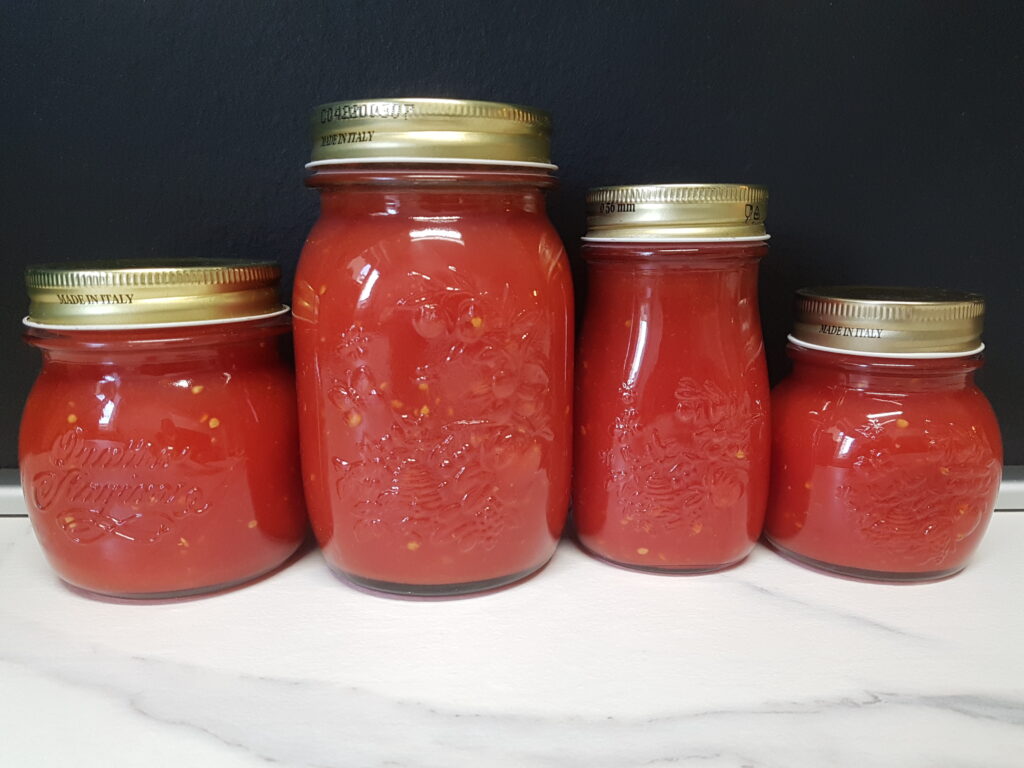
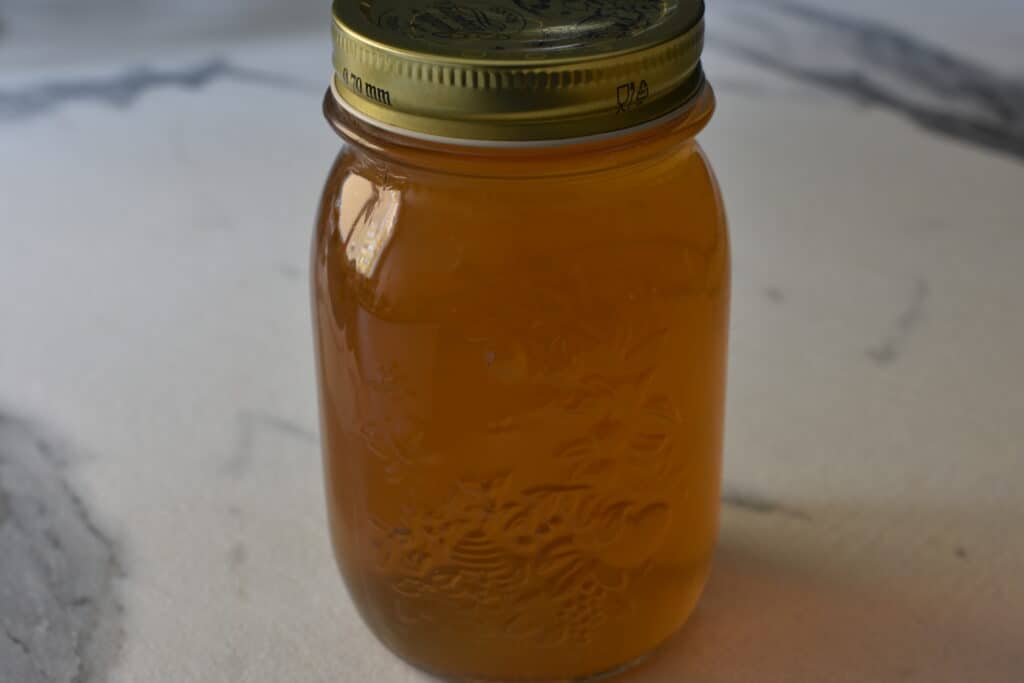
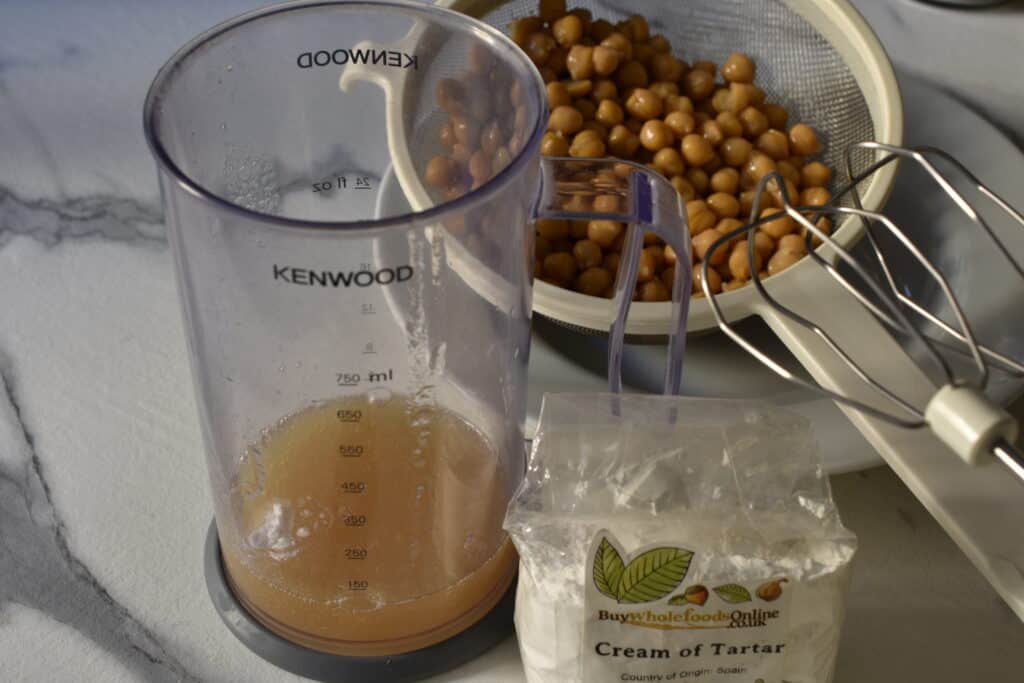
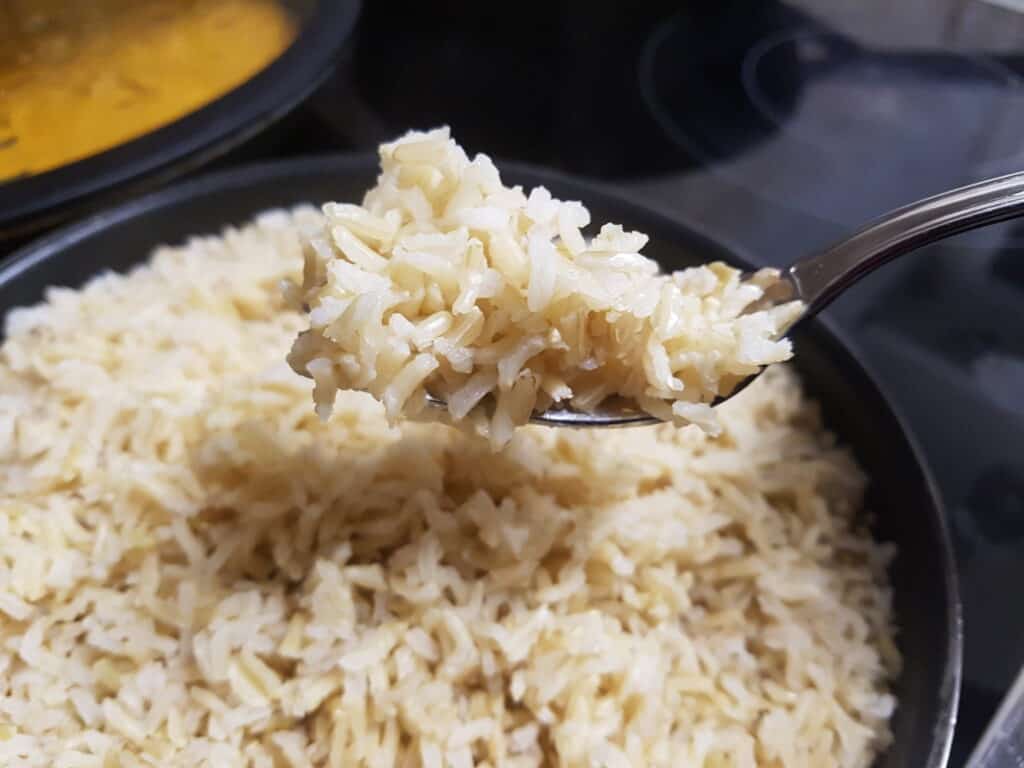
I hope you liked this recipe for homemade vegan liquid laundry detergent using authentic Marseille soap. If you did, it would be great if you could give it 5 stars and leave a comment below! It helps other readers to find my content and posts and ultimately makes my blog more successful! Thank you so much for your support! Deborah xx
Would you like to receive my recipes as soon as I publish them? Subscribe below!
